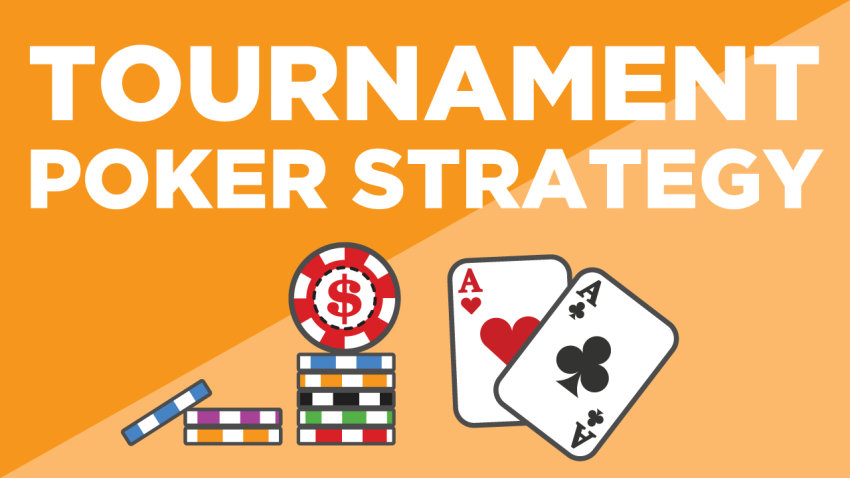Poker tournament strategies are essential for navigating the electrifying landscape of competitive poker events. Whether you’re a newcomer or a seasoned player, mastering the intricacies of poker can significantly enhance your chances of winning tournaments. From understanding the importance of position at the table to knowing when to bluff, each decision can be pivotal in your journey toward poker tournament success. This guide will share valuable poker tips for beginners that will prepare you to tackle the challenges and maximize your potential in these high-stakes games. As we delve into the best poker tournament tips available, get ready to refine your skills and elevate your game to a whole new level.
Diving into the realm of competitive card games, players often seek out effective methods to navigate the pressures of tournaments. Known for their unique formats that challenge strategy and skill alike, these events demand more than just luck; they require a well-thought-out approach. To flourish in a tournament setting, understanding various tactics will prove invaluable in ultimately achieving victory. An exploration of proven techniques not only equips you for the challenge but can also yield significant rewards in terms of chip stack management and opponent assessment. Join us as we unpack the fundamental components of engagement and success in this thrilling card arena.
Mastering Poker Tournament Strategies for Beginners
To excel in poker tournaments, especially for beginners, understanding and applying effective poker tournament strategies is essential. Your approach should encompass not only a grasp of the rules but also an insight into your opponents’ behavior. Incorporating poker tips for beginners, such as playing tight in the early stages, can help preserve your chip stack. This conservative approach reduces the risk of elimination before you’ve even had a chance to showcase your skills. Remember, the goal is to survive the early levels and find opportunities to build your stack through well-timed aggression.
As you progress through the rounds, adjust your strategies based on your chip count and the dynamics at the table. For instance, players with larger stacks can afford to apply pressure by broadening their range of hands, while those with smaller stacks should focus on making calculated bluffs or leveraging high-value hands. By being adaptable and incorporating advanced poker strategies, you can significantly increase your chances of tournament success.
Top Tips for Winning Poker Tournaments
Winning poker tournaments requires a combination of skill, strategy, and a touch of luck. Whether you’re a novice or have some experience, employing key strategies is crucial for a successful run. Begin with fundamental poker tournament tips such as mastering bet sizing to optimize your chances. Small adjustments in your bet sizes can induce errors from your opponents, increasing your winnings over time. Additionally, always be aware of your table position; being seated later gives you a strategic advantage, allowing you to observe your opponents’ behaviors before making decisions.
Another vital aspect to consider is your mental state during a tournament. Staying composed and focused can distinguish winners from the rest of the pack. Avoid getting too caught up in the pressure of the moment; instead, practice maintaining a balanced approach to both wins and losses. Remember, each hand gives you an opportunity to learn and improve. Therefore, incorporating these best poker tournament tips into your gameplay will not only enhance your experience but also significantly boost your potential for success.
Frequently Asked Questions
What are the best poker tournament strategies for beginners to win their first tournament?
When it comes to winning poker tournaments, beginners should focus on essential poker tournament strategies such as starting with a solid game plan, managing their chip stack wisely, and understanding the dynamics of the table. It’s crucial to practice selective aggression—stealing blinds when appropriate and employing strategic 3-bets. By familiarizing themselves with poker tips for beginners and adapting to varying stages of the tournament, players can improve their chances of poker tournament success.
How can poker strategies be adapted for different types of tournament formats?
To adapt poker strategies effectively for different tournament formats, such as freeze-out or re-buy tournaments, players must first understand the specific rules and structure of each format. In freeze-out tournaments, where players cannot re-enter after being eliminated, it’s important to play conservatively early on, preserving chip equity. Conversely, in re-buy tournaments, players can afford to take more risks early since they have the chance to re-enter, allowing for a more aggressive approach. Tailoring your strategy based on the tournament format can significantly enhance your performance and lead to a greater likelihood of winning poker tournaments.
| Key Point | Details |
|---|---|
| Introduction | Poker tournaments are competitive and exciting, requiring proper preparation. |
| Understanding Basics | Familiarize yourself with poker rules, hand rankings, and different tournament formats. |
| Game Plan | Develop a strategy around selective aggression, understanding table dynamics, and crucial practices like stealing blinds. |
| Stealing Blinds | Engage in stealing blinds to increase your chip stack without risking too much. |
| 3-Betting | Use 3-bets with weaker hands to apply pressure and mix up your play style. |
Summary
Poker Tournament Strategies are essential for any player looking to make a mark in competitive games. Successfully navigating your first poker tournament involves a mix of understanding the game, creating a strong game plan, and strategizing your play effectively. Each aspect, from grasping the rules to implementing techniques like stealing blinds and 3-betting wisely, contributes to a player’s ability to thrive in the high-stakes atmosphere of a tournament. By focusing on these strategies, new players can not only enjoy their first experience but also position themselves for potential victory.
